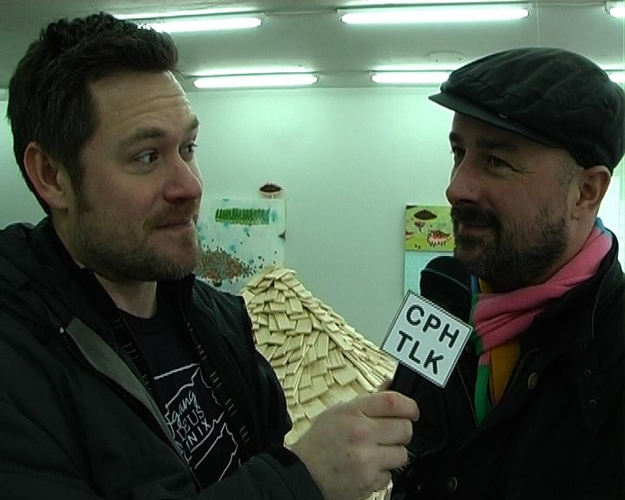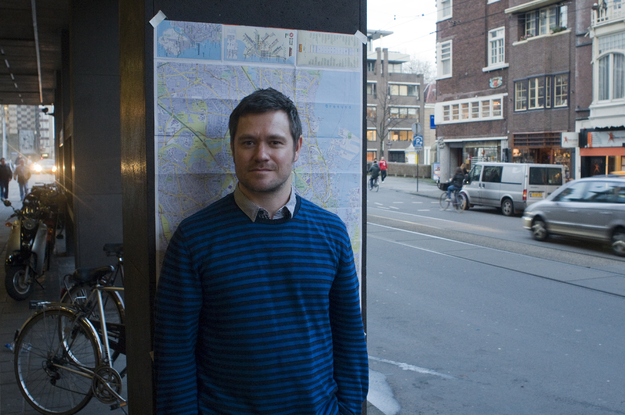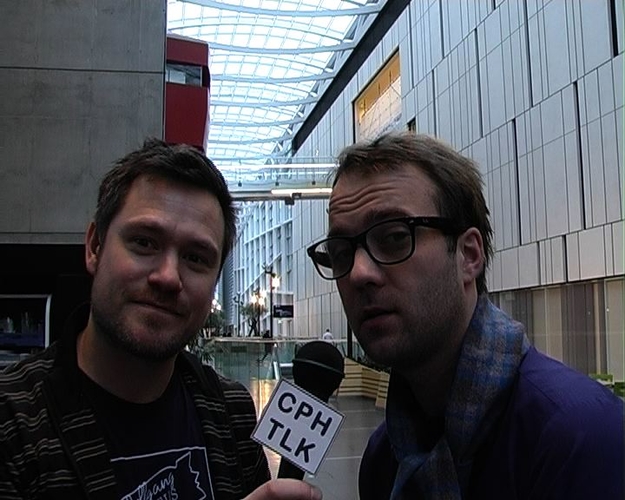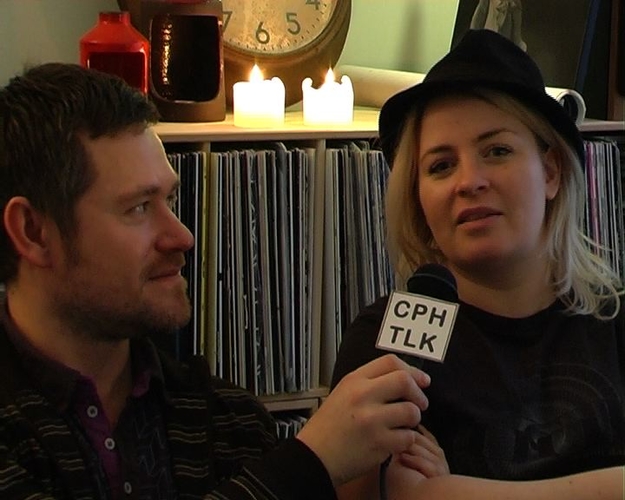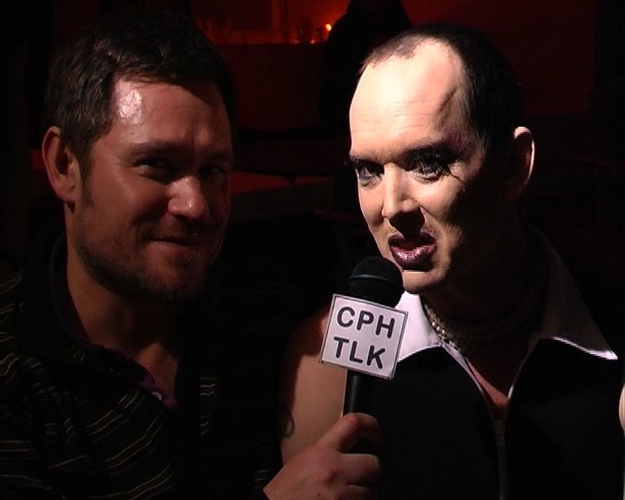Erik Pold just arrived from the airport, and everybody is searching for him. The guide, the graphic designer and the journalist. At four o' clock, when I am writing another interview, he has time to speak about his project and the city of Copenhagen. In the nineties the Danish performance artist lived in Amsterdam for four years; he can even speak a little Dutch.
For the Amsterdam Biennale you made a video, CPH TLK. What is it about?
'I am quite interested in interviews at the moment. I decided to meet up with four people who work in the (sub)cultural scene in Copenhagen. All four influenced the city in the last ten years and have clear opinions about it. I met them in certain locations in order to show different parts of the city. I met curator Borge Igor Brandt in a gallery in the meat packing district, which is slowly transforming into the hip, new area. We talked about this place and about the city. How do we perceive it? I did the same thing with the three others: singer and radio-producer Mads Nygaard, dj and composer Rosa Lux and performer and queer artist Miss Fish.'
What was the purpose of the project?
'To make a portrait of the city. It's a travel guide, but it's about how we, as the citizens of Copenhagen, perceive the city. It gives you a view on the contemporary underground culture in Copenhagen.'
On the Copenhagen pavilion page (about the pavilion in the Amsterdam Biennale) I read that Danish people are the happiest people in the world.
'There are several surveys stating this and most recently, we had a visit from Oprah Winfrey. She made a whole program about how happy the Danes are, especially the women. For us who live there it seems a bit ironic, because Denmark has gone really right wing in the last ten years. I don't think we consider ourselves the happiest people in the world. When surveys claim that, you have to ask yourself if that is true or not.'
And these four people you interviewed contribute to this happiness?
'(Laughs) Of course they do, to me at least! In social construction theory there is the idea that meaning is created because we talk to each other. I was interested in: how do we define Copenhagen when we start talking about it? When somebody like Winfrey comes to see the liberated women and the happiness she can make this construction. But you could also make a portrait of the city that shows the opposite.'
What is social construction theory?
'It's a school of thought that comes out of cultural relativism and post-modernism. It says: there are no truths. Everything is a social construction. The truth about a city is something we find out through conversation. I think identity works the same way.'
Were these conversations valuable?
'I think that might come out of it. Even though there is a state religion in Denmark and there are nationalistic parties, the reality for most people is that there are no truths. Everything is relative and we have to look for our own truths.'
If you wanted to make a portrait of the city, why didn't you interview architects or developers?
'Contemporary architects think about the framing, but not so much the content. A good example of that is Warehouse9. An architect renovated it for us, but never spoke with us about what we wanted to do with the space. As a result it looked like it could become a nice restaurant, but we wanted it to be an underground, queer club. The first thing we did was cover up all the glass of the windows because we were afraid that people were going to smash it when they got drunk at night. I am more interested in people that use the city, people who are creators of social value. Through culture we can create some value. I tried to include that in my interviews with the four cultural producers. But I also asked them: where do you think people should go? Because CPH TLK is also meant as a travel guide.'
